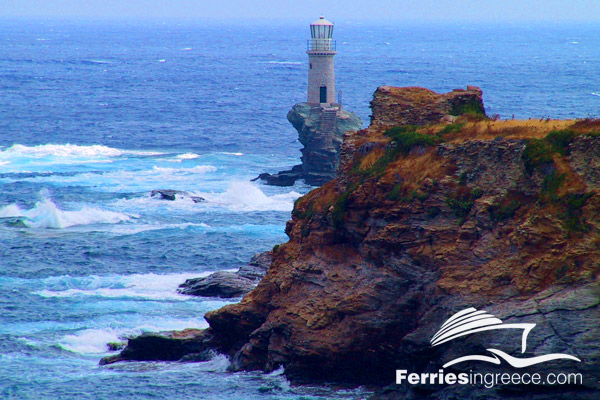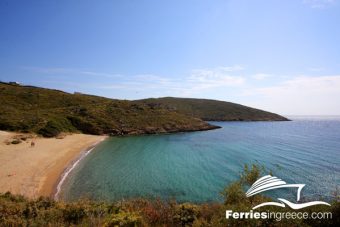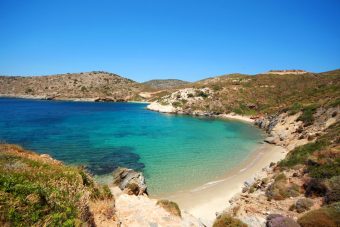By on 06-02-2015
The Greek islands are mostly summer holiday destinations, visited for their wonderful beaches and genuine hospitality. In winter, however, many islands seem deserted, as the majority of the tourist businesses close down from late October until early May, and most hotels, taverns, and souvenir shops are not available. Ferry transportation is still possible to all Greek islands, but it is more challenging than in summer due to the occasional bad weather and less schedules by the ferry companies.
At least this is the case for small Greek islands that do not have many permanent residents or their geographical location is far from Athens. Larger islands, like Corfu, Rhodes, and Crete, are relatively lively even offseason, and have frequent and more reliable ferry connections.
Greek ferries in winter: less schedules
Contrary to what many foreigners would believe, ferries in winter actually do operate, although there are fewer ferry schedules than during summer. Due to the limited amount of passengers, which includes the few residents and even fewer off-season visitors, routes are less frequent. Also, the bad weather that occasionally happens over the Aegean Sea, with strong winds and rain, may be responsible for cancellations.
Greek ferries to islands of medium popularity, such as Sifnos, Milos, Patmos, or Leros, usually operate three times per week during winter. Even smaller islands, like Sikinos and Tilos, have ferries once or twice per week.
Less inter island routes
Greek ferries in winter serve basic itineraries, therefore the direct connection between islands can be difficult. For example, in winter there is no direct ferry between Santorini and Mykonos, although in summer this is the most popular ferry connection.
Also, some tourist ferry lines do not operate at all in winter or have fewer schedules, such as the line Kalamata to Kythira and Kissamos Crete, or from Kimi to Skopelos and Alonissos. These lines have summer schedules only.
Windy weather
Greek ferries in winter often face the obstacle of bad weather. In fact, some ferry schedules get canceled due to strong winds or heavy rain. Though temperatures may be mild, usually around 10oC on average, the Aegean and especially the Cyclades islands get heavily affected by strong northern winds, sometimes resulting to ferry cancellations.
Only large wind-resistant ferries, such as the ferries of Blue Star or Hellenic Seaways, are able to travel the Aegean in strong wind conditions, at least during winds of 7-8 on the Beaufort scale. In the Ionian Sea, however, ferry schedules are more reliable, as the wind is not so strong.
Greek islands to visit in winter
Nice options for off-season holidays in the Greek islands are large or medium-sized islands, where some hotels stay open all year round. Sea swimming is not suggested in winter, as the weather is cold and there might be strong currents, but visitors are welcome to enjoy the laid-back lifestyle and explore the unspoiled nature of the islands.
Guided tours are usually not available at that time of the year, but independent travelers can definitely have a great time talking with the locals, hiking, trying traditional cuisine, and even engaging in agricultural activities.
Crete, Rhodes and Corfu are some suggestions for nice winter vacations, as they have a number of hotels, restaurants and travel agencies operating all year. The ferry connection from Athens to these islands is daily and very convenient. Smaller destinations that are beautiful in winter are also Paros, Naxos, and Santorini.




